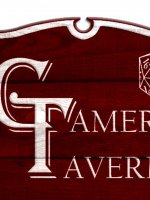It’s been a while since we have had a Black Flag update, but we’re excited to announce that the drought has ended!
Kobold Press is excited to announce our first public Black Flag Roleplaying Reference Document (BFRD). This document is built off the current public Alpha Release and falls under the ORC license. This means that now EVERYONE can freely create using this open rules system!
This is only the first version of the BFRD. As we complete more of the final rules, the Black Flag Reference Document will be updated and re-released to stay current. Make sure to follow us on social media, in our Discord, or through the Courier newsletter so you don’t miss when the next update of the Black Flag Reference Document goes live.
You can download the Black Flag Reference Document from the Kobold Press website.



